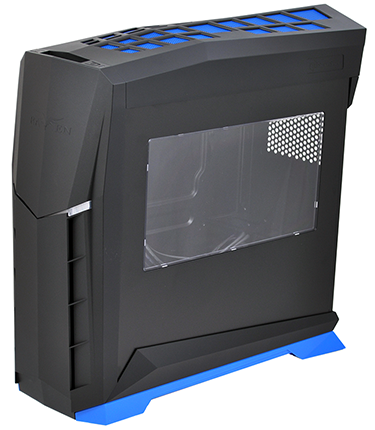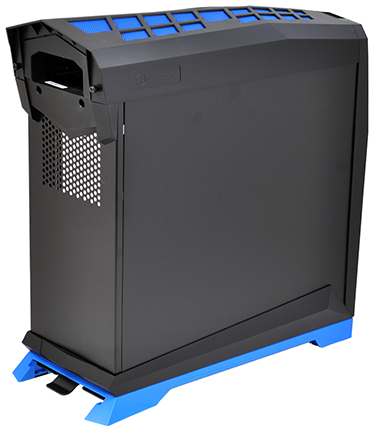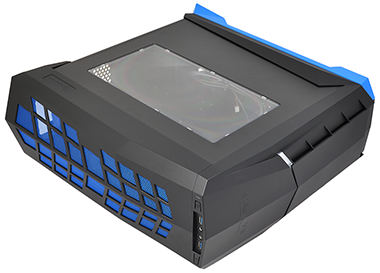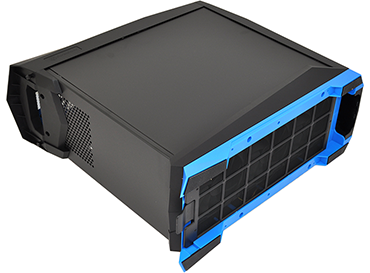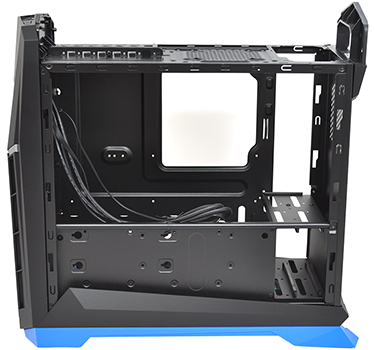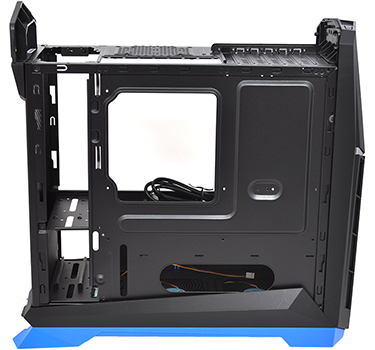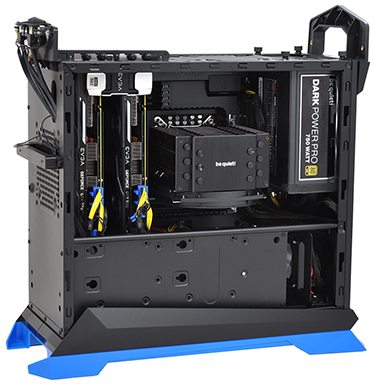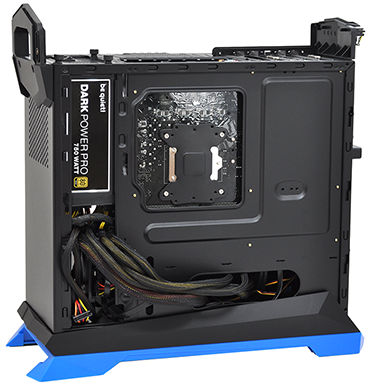Introduction
Those of you who have followed the DIY PC scene for the last decade or so will be well aware of SilverStone's "stack-effect" Raven chassis. Introduced way back in 2008, the first Raven - RV01 - turned chassis design on its head by installing the motherboard at a 90º angle.
Back then, when hot-and-thirsty components ran like small power stations, the rotated layout offered plenty of intrigue. Raven was something different, and the premise made perfect sense: hot air rises, so why not point all your components in that general direction? But there were inevitably a few trade-offs. Raven enclosures were typically big and expensive, they weren't always easy to work with, and installing your components the wrong way up always felt... well, a little bit weird.
Understanding that today's PCs are typically cooler and smaller affairs, SilverStone has re-evaluated the Raven proposition and conjured up a modernised offering dubbed the RVX01. This latest instalment in the Raven range is the smallest to date and, with a price tag of just £65, brings the rotated layout to a more mainstream market.
If you know what to expect from a Raven Series enclosure, first impressions are likely to be favourable. RVX01 is almost as eccentric as its predecessors, with a sweeping top section, all sorts of weird and wonderful angles, and for Raven fans a familiar external aesthetic. As a gaming case it does look reasonably unique, and the colour combinations are welcome. Our blue-on-black review sample looks good, but there are also green and red variants at the same price point.
Shaving off some of the bulk of previous Ravens is a step in the right direction, though don't be fooled into thinking the RVX01 is a shrinking violet. This remains a formidable mid-tower solution, standing 215mm (W) x 485mm (H) x 500mm (D) in size and making available an overall volume of just over 52 litres.
Build quality is reasonably good throughout, as you'd expect from a SilverStone case, though concessions have been made to bring down the price. The accents surrounding the steel central frame are entirely plastic, and there isn't a great deal of attention paid to user-friendly niceties. Aside from the pull-out dust filter lining the bottom of the case, almost everything else requires effort to access or maintain.
Getting inside the case, for example, entails removing two thumb screws, sliding off the top section and then undoing four cross-head screws to pull away the side panels. Doesn't sound like too big a hardship, but remember all the I/O ports are hidden beneath the top section. Want to plug in another monitor? Better deal with those thumb screws first.
A modern chassis should, in our estimation, offer easier access, and at first glance the RVX01's interior doesn't fill you with confidence. Despite being a mid-tower solution, the internal cavern feels somewhat cramped and constrained due to the unconventional layout. This feeling of limited access is magnified by a 'side plate' that, while offering two mounting points for 2.5/3.5in disks, serves to restrict access to the motherboard tray beyond.
There's no feeling of freedom and the RVX01 comes across a jigsaw dependent on the right pieces. Using the picture above-left as a guide; you can squeeze a power supply into the top-right corner (though it mustn't be deeper than 180mm); there's room for an ATX or Micro-ATX motherboard; graphics cards can measure up to 348mm in length; and your CPU cooler must be shorter than 159mm. There are two additional storage bays with removable (but not tool-free) trays, taking the total number of bays to four, yet the chassis as a whole feels hampered, particularly if you have liquid-cooling aspirations.
Our test platform looks rather tasty, but take our word for it, installing the above components wasn't a great deal of fun. The PSU had to be wedged in at angles we didn't know existed, the motherboard had to follow a similar path, and the expansion slot covers aren't reusable, so you have to contend with breaking off the metal covering plates.
These might be minor frustrations, yet there are plenty of them. SilverStone's trio of pre-installed 120mm fans line the bottom of the case, pushing air up and over the components, but all three come equipped with short cables that are routed in such a way that they're unlikely to reach a motherboard's headers. Any chassis with this number of fans should ideally come equipped with a hub or splitter cable, but we instead had to resort to temporarily removing the fans in order to re-route the cables directly up to the motherboard.
To our surprise, the RVX01 is the first mid-tower chassis to struggle to accommodate our test hardware. The be-quiet! CPU cooler touches the side window, and yet despite the limited CPU cooler support, there's practically no space behind the motherboard tray. As a result, cables can take one of two routes - across the bottom of the case potentially obstructing airflow, or behind the tray with the acceptance of a large bulge in the side panel. We've opted for the latter, but neither is ideal, and we're going to need to see stellar cooling performance for the latest Raven to have been worthwhile.






